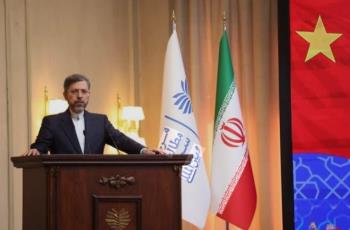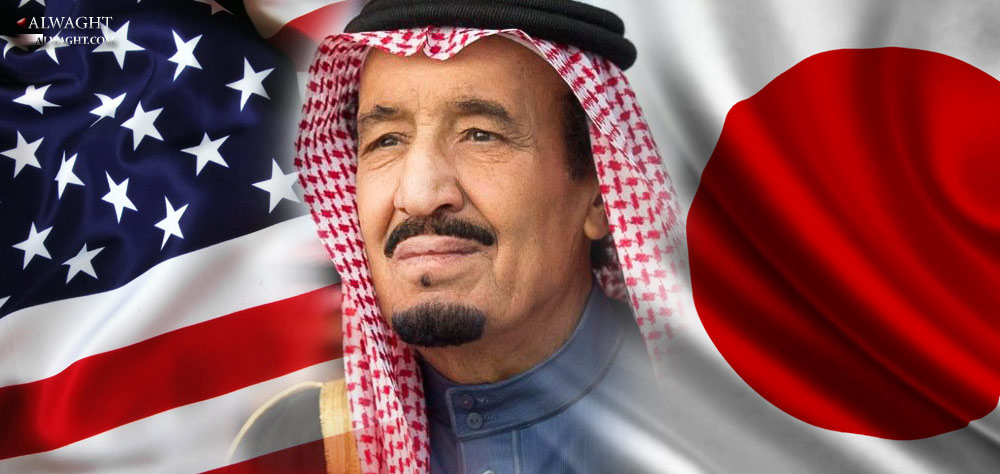Alwaght- The recent visit Saudi Arabian King Salman to Japan and the current Washington tour of Prince Mohammed bin Salman, the Saudi crown prince and defense minster, are analyzable from a series of perspectives. The Saudi monarch's Tokyo trip predominantly chased the kingdom's economic goals but the prince's visit to the US eyes some political objectives, beside major economic ones.
Last year Saudi Arabia unveiled its “Saudi Vision 2030” plan, an ambitious economic blueprint that strives for cutting reliance on oil as a main source of income during the scheduled time. This requires the kingdom to further interact with the developed countries. With a consideration of the new American atmosphere, the regional developments, and a prolonged war on the neighboring Yemen, Saudi Arabia's main end is to tackle some of its troubles using diplomacy. The recent diplomatic tours indicate that the kingdom aims to put all of its potentials at work to fix its damaged position in the region.
How successful the Saudi leaders will be in implementation of their plans and obtaining their goals is an uncertain matter. But what is clear now is that Saudi Arabia is an oil-rich country and biggest oil exporter, with huge currency reserves, and also is setting eye on an ambitious economic program. This makes it natural for the economic powers to be attracted to seize the economic opportunities offered by Saudi Arabia.
But this is not everything behind Riyadh's economic vision for development and tightened contacts with economic powers. Other goals are eyed, including a firm aim to put strains on Iran, its major regional rival, and then isolate it. To put it differently, Riyadh wants to turn out winner of the game with Tehran via economic interactions with other countries and also through offering economic privileges to them.
At the time of President Barack Obama, the former US president, the Washington-Riyadh relations were chilled and unfriendly, because the former American leader was not convinced to fully back the kingdom’s regional policies, whereas the Saudi rulers expected the Obama administration to meet all of their demands in Syria or Yemen, two areas of Saudi Arabia's military involvement. But to their frustration, President Obama declined to be responsive to their calls.
Now they see Donald Trump's swearing-in a must-seize chance for them. Traditionally holding firm ties with the Republicans, the arms manufacturers, and oil companies, the Saudi leaders want to repair and boost relations with Washington using Trump and the Republican rise to absolute power. Given the President Trump’s policy of leveraging foreign policy for domestic economic improvement, it seems that Saudi Arabia presents a good scope of joint work for the new administration.
Trump well knows that after China, Saudi Arabia comes second in depositing world’s largest foreign reserves in the US. This tempts the new American president to bolster relations with Riyadh and in exchange allure it into bigger investment on the American soil. For Trump, more investment means more jobs, and this allows him to accomplish one of his campaign-time pledges for job creation.
On the other side, the Saudi leaders cherish the political changes in the US that ended a period of strained relations with the former President Obama administration. They will definitely bid for support and will call the new administration to stretch out a helping hand to cope with their regional troubles. One of the parties with which Saudi Arabia has problems is Iran. Riyadh’s immediate aim now is to pressure Iran on the strength of Trump’s administration, as it seeks fulfilling its goals in Syria. Trump signals a relative closeness of viewpoints to Saudi Arabia, just unlike the former American administration that was in conflict of ideas with the kingdom over the regional issues. Seemingly, the Trump-eyed coalition in West Asia with Turkey, Saudi Arabia, and the Israeli regime now looks easier to establish, especially that Saudi Arabia heartily welcomes the idea.



























